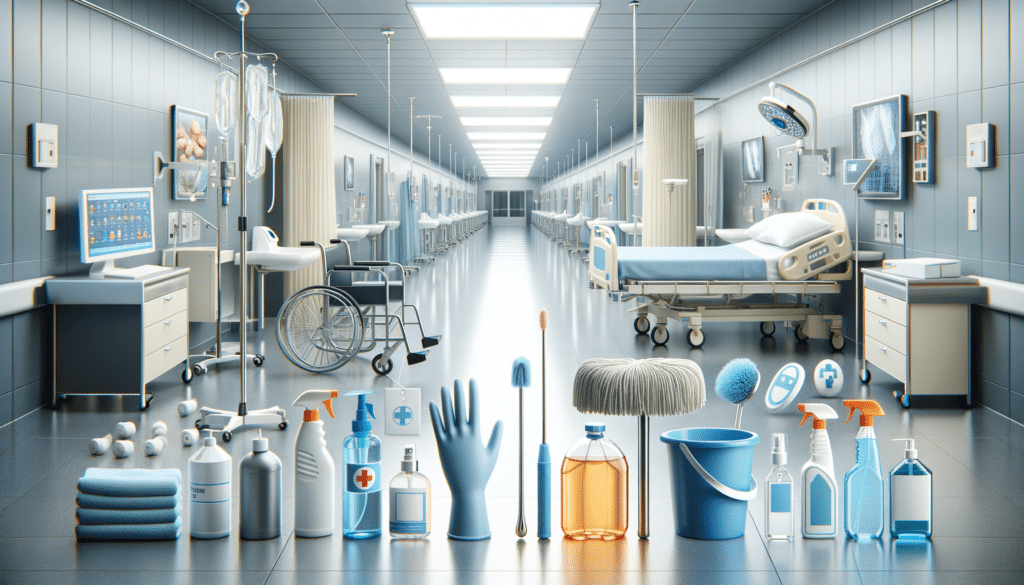Introduction to Hospital Cleaning Services
Hospital cleaning services play a pivotal role in the healthcare industry by ensuring that medical facilities are kept clean, safe, and hygienic. In an environment where the risk of infection is high, maintaining cleanliness is not just a matter of aesthetics but a critical component of patient care and safety. The significance of these services extends beyond the visual appeal, as they are integral to preventing hospital-acquired infections (HAIs), which can have severe implications for patient health and recovery times.
Importance of Hygiene in Healthcare Settings
Hygiene in healthcare settings is paramount, as it directly impacts patient outcomes and the overall reputation of the institution. Hospitals are environments where pathogens can easily spread, making stringent cleaning protocols essential. Effective cleaning services help to mitigate the risk of HAIs, which are infections patients can acquire while receiving treatment for other conditions. According to the Centers for Disease Control and Prevention (CDC), HAIs are a significant concern, affecting approximately 1 in 31 hospital patients on any given day.
Key aspects of maintaining hygiene in hospitals include:
- Regular disinfection of surfaces and medical equipment.
- Proper disposal of medical waste.
- Ensuring clean linens and patient gowns.
- Maintaining clean air through HVAC systems.
These practices help in reducing the risk of infection, ensuring patient safety, and enhancing the quality of care provided by healthcare professionals.
Advanced Cleaning Technologies and Methods
The evolution of cleaning technologies has significantly enhanced the effectiveness of hospital cleaning services. Traditional cleaning methods have been supplemented by advanced technologies that offer more efficient and thorough sanitation. Innovations such as ultraviolet (UV) light disinfection systems and electrostatic sprayers have become increasingly popular in healthcare settings.
UV light disinfection involves using ultraviolet light to kill or inactivate microorganisms by disrupting their DNA. This method is particularly effective in sterilizing surfaces that are difficult to clean manually. Electrostatic sprayers, on the other hand, apply a positive charge to disinfectants, allowing them to adhere more effectively to surfaces, including those that are hard to reach.
These technologies, combined with traditional cleaning methods, provide a comprehensive approach to maintaining hospital hygiene, ensuring that all areas, from operating rooms to waiting areas, are kept safe and clean.
Challenges Faced by Hospital Cleaning Services
Despite the critical importance of hospital cleaning services, several challenges can hinder their effectiveness. One of the primary challenges is the need for continuous training and education of cleaning staff. Hospital cleaning is not a one-size-fits-all task; it requires specialized knowledge and skills to deal with the unique challenges presented by medical environments.
Another challenge is the management of resources, including time and cleaning supplies. Hospitals are busy environments, and cleaning schedules must be meticulously planned to avoid disrupting patient care while ensuring all areas are adequately sanitized. Additionally, the use of environmentally friendly cleaning products is becoming a necessity, but these can sometimes be more expensive and require careful handling.
Addressing these challenges requires a coordinated approach, involving regular training programs, investment in high-quality cleaning products, and efficient scheduling systems.
Conclusion: The Future of Hospital Cleaning Services
As healthcare continues to evolve, so too will the role of hospital cleaning services. The future will likely see even greater integration of technology and innovation in cleaning practices, with a focus on sustainability and efficiency. Hospitals will need to adapt to these changes to continue providing safe and hygienic environments for patients and staff.
In conclusion, hospital cleaning services are an indispensable part of the healthcare system, crucial for preventing infections and ensuring patient safety. By embracing new technologies and overcoming existing challenges, these services will continue to play a vital role in the healthcare landscape.




